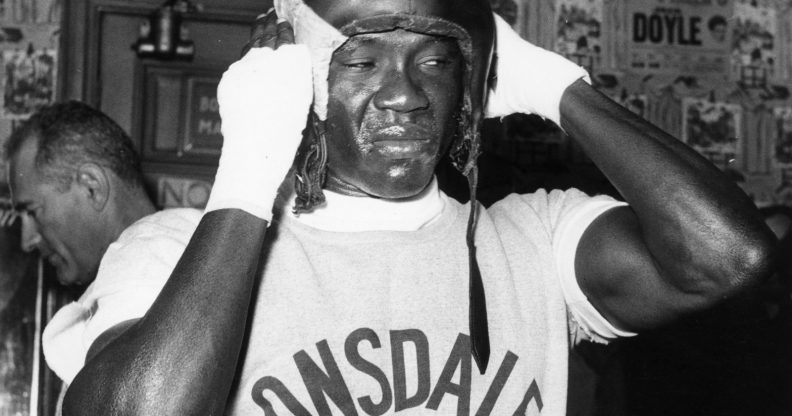Biopic about bisexual boxer who killed his homophobic opponent finally in the works

(Photo by Central Press/Getty Images)
A biopic about bisexual boxer Emile Griffith is finally in the works after rumours for the film began circulating in 2015.
The biopic is set to be directed by Lenny Abrahamson and produced by Ed Guiney.

The pair previously worked on the Oscar-winning film, Room.
Now, the two will set to work on creating the film which will document Griffith’s life.
The bisexual boxer is known for killing a homophobic competitor during a match in 1962.
He went against Cuban fighter Benny “The Kid” Paret at Madison Square Garden.
Part reportedly mocked Griffith during the weigh-in calling him a maricón (Spanish for faggot) and grabbing his bottom.
In the 12th round of the fight, Griffith threw an uppercut at Paret and knocked him into unconsciousness.
The boxer died 10 days later in hospital, having never regained consciousness.
Now, it is believed that Part died from injuries sustained in a separate fight.
However, the match was a turning point in Griffith’s career and made him notorious in the fighting world.

(Photo by Keystone/Hulton Archive/Getty Images)
The boxer died in 2013 aged 75 after suffering from dementia pugilistica, a neurodegenerative disease common in those who have suffered traumatic brain injuries or blows to the head.
Abrahamson previously spoke about taking on Griffith’s story to Deadline.
“It is so rich that it’s hard to know where to start.
“As a character study, Griffith is incredibly compelling. There was a gentleness and innocence about him, and he never seemed conflicted about his sexuality; indeed he found joy in it.
“He inhabited two worlds – the underground gay scene in New York in the 60s and the macho world of boxing. The societal stigma at that time was dreadful and created a crushing pressure on him.”
Abrahamson added that Griffith had hit a perfect balance between his celebration of sexuality and sports.
“You look at how closely his two worlds intersected… just how different are they, when the sport is such a celebration of the male body and the beauty of its athleticism.
“Go one step further, and inject the tiniest sense of sexuality, and people are up in arms. Griffith himself once said a quote that just floored me: ‘They forgave me for killing a man, but they couldn’t forgive me for loving a man.’
“That to me was so powerful and such a crazy contradiction. And it is still relevant today.”

